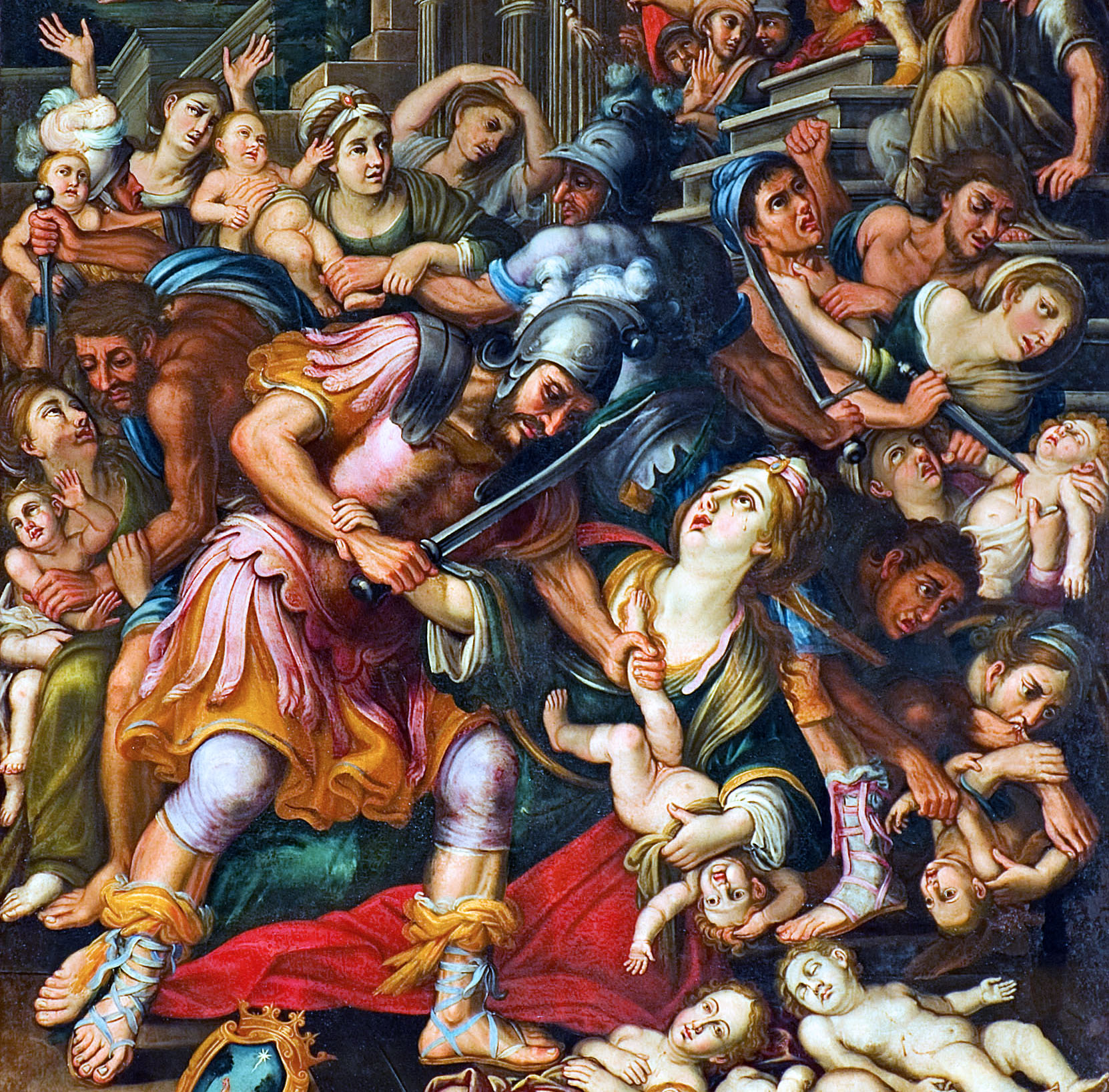The feast of the Holy Innocents or Childermass, as it is traditionally known, is celebrated in Italy on December 28. Because of its significance, it is not celebrated with the same revelry, feasting and joy associated with the other Christmas season holidays. Unlike Epiphany, which links the birth of Jesus with a spirit of welcome as shown by the Three Wise Men, it recalls the massacre of innocent children ordered by Herod in order to kill the Messiah, perceived by Herod as a threat to his rule over the Judeans.
Herod, the King of Judea, was unpopular with his people because of his connections with the Romans and his religious indifference. Though he tolerated the worship of Judaism by his people, he was insecure and fearful of any threat to his throne. Although historians describe him as a master politician, Herod was a tyrant capable of extreme brutality. He killed his wife, his brother and his sister’s two husbands, to name only a few.
According to the Book of Matthew, Herod was “greatly troubled” when the Three Wise Men from the East came asking the whereabouts of “the newborn king of the Jews,” whose star they had seen. They were told that the Holy Scriptures named Bethlehem as the place where the Messiah would be born. Herod cunningly told them to report back to him so that he could also pay “homage to the newborn child.” They found Jesus, offered him their gifts and warned by an angel, avoided Herod on their way home.
Herod became furious and “ordered the massacre of all Judean boys in Bethlehem and its vicinity two years old and under.” Jesus escaped this fate when Joseph and Mary took their baby and fled to Egypt. Several arguments surround the events of this Biblical story. One tells that Jesus, guilt-ridden in later years, felt responsible and willingly accepted to let himself be crucified because he escaped the punishment intended for him, while many others died in innocence. Another tells that it was Joseph who was responsible for Jesus’ escaping the fate intended for him. Joseph knew of Herod’s intention to massacre the children of Bethlehem, but failed to warn the townspeople and chose only to save his own child. Guilt-ridden ever after, Joseph finally expiates his sin by letting himself be crucified, an event not narrated in the New Testament.
Some Italians believe that this day should be commemorated after the Epiphany because the event was provoked by the visit to Bethlehem and their veneration of the Holy Child, which thereby incited the wicked Herod. In Italy, La Festa degli Innocenti is celebrated religiously with a Mass and a specific liturgy reserved for this day. Five of these children’s relic remains are said to be in an ancient Christian Sarcophagus housed in the Lateran Museum in Rome. Some institutions and municipalities do provide a simplistic secular touch, especially for children. For example at the Abbey of Frassinoro in the province of Modena, after morning Mass, there is a show staged for the small ones, followed by light refreshments, including panettone, torrone, cookies and delicious hot chocolate.




